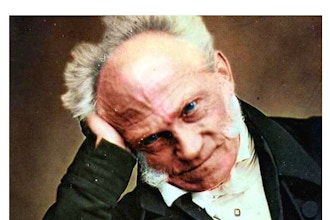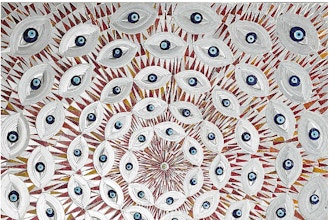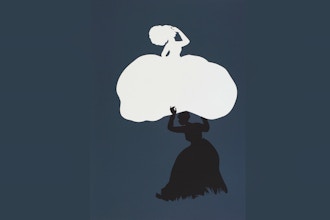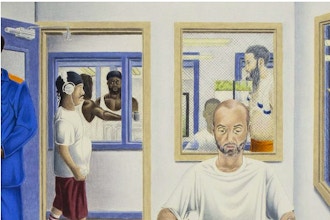Philosophy Classes
Online
Explore the depths of human existence and gain insights into the fundamental questions of life through online Philosophy classes, covering topics such as ethics, epistemology, and metaphysics.
Unfortunately, no classes have spots left
Infinity: History, Mathematics, Philosophy
Brooklyn Institute for Social Research @ 247 West 37th St, New York, NY
How can we, as finite beings, grasp the concept of infinity? Yet humans have been contemplating infinity for millennia, whether inspired by nature, philosophy, spirituality—or mathematics. This course is a historical and conceptual approach to the latter realm, the mathematics of infinity. Our topics will include the ancient Greeks’ discovery of irrational numbers and Zeno’s paradoxes; Aristotle’s distinction between “actual infinity”...
An Introduction to Schopenhauer
Brooklyn Institute for Social Research
The Worst of All Possible Worlds: an Introduction to Schopenhauer Arthur Schopenhauer is a true oddity in the history of philosophy. Although a great metaphysical systematizer in the tradition of Leibniz and Hegel, Schopenhauer posed a worldview entirely antithetical to the “optimism” characteristic of traditional Western philosophizing. Whereas for Leibniz ours is “the best of all possible worlds,” Schopenhauer insisted that we are “not...
A Ruthless Criticism of Everything Existing: An Introduction to Marx
Brooklyn Institute for Social Research @ Online Classroom
In the mid-nineteenth century, a young Karl Marx wrote, in the form of a published open letter to Arnold Ruge: “But if the designing of the future and the proclamation of ready-made solutions for all time is not our affair, then we realize all the more clearly what we have to accomplish in the present—I am speaking of a ruthless criticism of everything existing, ruthless in two senses: The criticism must not be afraid of its own conclusions,...

Philosophy Classes Gift Card
Thousands of classes & experiences. No expiration. Gift an experience this holiday season and make it a memorable one. Lock in a price with the Inflation Buster Gift Card Price Adjuster™
Heidegger: Truth, Technology, and Poetry
Brooklyn Institute for Social Research @ 30 Irving Pl, New York, NY
Sometime in the early 1930’s, Heidegger’s thought is supposed to have undergone a change. His philosophical project shifted from the “fundamental ontology” of his early work Being and Time—foundational to the development of wartime and post-war “existentialism”—to what he would come to describe as Seinsgeschichte—a “history of being.” Heidegger was interested in understanding how the meaning of being, what it means...
Understanding Loneliness: Literature, Philosophy,Theory
Brooklyn Institute for Social Research
How are we to understand loneliness today? It appears that we are facing a mass epidemic of loneliness—one perhaps exacerbated by virological pandemic of COVID-19. Britain has appointed a Minister of Loneliness to counter rising rates of isolation. Approximately 20-43 percent of American adults over the age of 60 experience “frequent or intense loneliness.” And, it is clear from medical research that loneliness has significant health impacts:...
Friedrich Nietzsche: Truth and Morality
Brooklyn Institute for Social Research @ Online, New York, NY
Friedrich Nietzsche is among the most notorious and controversial thinkers in the western intellectual tradition. He aimed to philosophize “with a hammer,” to demolish the philosophical tradition founded by Socrates and Plato and slaughter its most sacred cows. Central to that tradition is the value placed on truth, reason, objectivity, and a moral system based on altruism and self-sacrifice. In contrast to forming the bedrock of a stable...
Speculative Realism and Object-Oriented Ontology
Brooklyn Institute for Social Research @ Online, New York, NY
Speculative Realism and Object-Oriented Ontology: a Critical Introduction If much of continental philosophy takes as its fundamental orientation a perspective that originates in the late 18th century, how equipped can it be to address issues of urgent contemporary concern: ecological crisis, the pre-eminence of digital technology, neuroscientific advances, and the blurring of the lines between humans and machines? Motivated by such concerns, and...
Feminist Killjoys: an Introduction to Sara Ahmed
Brooklyn Institute for Social Research
What does it mean to be a feminist killjoy? Why are some actions and expressions recognized as bold but others stigmatized as willful? For feminist theorist Sara Ahmed, our embodied experiences are foundational to the ways we move through the world. That is, certain marked bodies—be they queer, black, brown, and/or woman—encounter pressure, resistance, or violence as they attempt to make space and flourish beyond the boundaries of the normative...
Stoicism: a Philosophical Introduction
Brooklyn Institute for Social Research
“Do not seek to have events happen as you want them to, but instead want them to happen as they do happen, and your life will go well.” Taken from Epictetus’ Handbook, this maxim expresses a signature teaching of the ancient philosophy of Stoicism; it encapsulates Stoicism’s resolution to the problem of life’s turbulences, from sour emotions (the coffee shop is out of my favorite drink) to overweening grief (a loved one unexpectedly...
Jürgen Habermas: Legitimation Crisis
Brooklyn Institute for Social Research
Today, Jürgen Habermas is known as one of the foremost public intellectuals of Europe. His scholarly corpus stretches from classical philosophy to sociology, linguistics to psychology, systems theory to religion, Critical Theory to pragmatism, alongside an equally vast body of public writings on politics, society, current events, and beyond. However, it was Habermas’ relatively early 1973 work Legitimation Crisis that introduced his thought to...
Walking and Philosophy: Thinking in Motion
Brooklyn Institute for Social Research @ Online Classroom
How does an activity as simple as walking become emblematic of an age—or a school of philosophy? From the wandering peripatetic of ancient Greece to the paradigmatic urban wanderer of 19th century Europe—the flâneur, a boulevard stroller immersed in the throng of human traffic—philosophers have been walking and thinking, alone or in among the crowd, amidst an asymmetrical organization of gazes, at once observing and being observed. The freedom—of...
Philosophy of Mind: Thinking and Consciousness
Brooklyn Institute for Social Research @ Online Classroom
What is the relationship between the mind and the brain? Is the mind a reducible, physical system, or is there anything more to consciousness? It’s often taken for granted that the human mind is a kind of computer (and that, similarly, computers can “think,” know, and learn much as humans do). In more classical thought, the mind was frequently regarded as independent of the body, a thing associated with an incorporeal “soul.” But how seriously...
Islamic Ethics: Philosophy, Theology, and Sharia Law
Brooklyn Institute for Social Research @ Online Classroom
Throughout the West, Islam is frequently presented as a powerful monolith, a civilizational threat, or an infection in the body politic. However, even a cursory glance at historical and contemporary materials reveals a long historical evolution in Muslim ethical thought and practice, which prompts questions of urgent contemporary relevance and dizzying scope: What is Sharia? Is it a rigid, 7th-century-based law, or an ethical system promoting the...
Kant’s Practical Philosophy: Reason, Morality
Brooklyn Institute for Social Research @ Online Classroom
Kant’s Practical Philosophy: Reason, Morality, and Freedom At the epicenter of Immanuel Kant’s broad philosophical project regarding nature, the self, aesthetics, and history is an ultimate concern with morality and the good. How must we re-conceive of our moral obligations to each other in the light of declining religious authority and belief? Can we understand morality on the basis of the nature of human reason alone? For Kant, there is an...
Racecraft: Race, Society, and Superstition
Brooklyn Institute for Social Research @ Online Classroom
“Race is a social construction” is something we commonly hear and say. Yet, biological ideas of race remain firmly rooted in our practices and discourse. Take, for example, the legal and customary categorization of race by phenotype. Or, the growing appeal of genetic testing for ancestry. The reason, according to Karen and Barbara Fields, is racecraft—a constantly reiterated set of practices that misconstrue racism for race. Racecraft is the...
Introduction to Feminist Theory
Brooklyn Institute for Social Research @ Online Classroom
What does it mean to be a “feminist”? To whom does the designation belong? And what does it entail—in political, economic, and social terms? For ways of experiencing, knowing, and acting in the world? And as a theoretical position in and of itself? Feminism, now broadly deployed in every imaginable sphere of discourse, has accrued over time a remarkable diversity of meanings—epistemological, political, economic, and social—in...
Prison Abolition: Punishment and Freedom
Brooklyn Institute for Social Research @ Online Classroom
Explore the historical and societal implications of prisons and punishment in this thought-provoking course. Delve into the work of influential authors such as Angela Davis and Ruth Wilson Gilmore to challenge the normative behaviors and expectations surrounding incarceration. Discover new perspectives on justice, retribution, and the complex relationship between freedom and imprisonment.
Simone de Beauvoir: Existentialism, Phenomenology, Feminism
Brooklyn Institute for Social Research @ Online Classroom
Simone de Beauvoir—activist, author, social critic, philosopher—is considered one of the pioneering figures of existentialist and feminist philosophy. Although her work spans multiple genres and address numerous modern social questions and classic philosophical dilemmas, it was the 1953 publication of The Second Sex that brought the “woman question” into plain and clear light and marked her entry into not only French, but also...
Dreams and Dreaming: Philosophy, Psychology, and the Unconscious
Brooklyn Institute for Social Research @ Online Classroom
Explore the realm of dreams through the lenses of philosophy, psychology, and the unconscious in this interdisciplinary course. Discover how dreams have inspired artists, writers, and theorists, shedding light on the nature of reality and our connection to others. Delve into the works of Freud, Benjamin, Coleridge, and more as you unravel the profound connections between dreams and waking life.
Living Authentically
Curious Soul Philosophy @ Live interactive virtual
Living Authentically: Simone de Beauvoir’s Antidote to Alienation We all struggle with the weight of society’s expectations about who we should be and what we should strive for. Sometimes we are so overcome by the external pressures of others’ beliefs and demands that our lives feel like they are no longer our own. And sometimes we get so good at internalizing the social norms that were handed down to us that our chains become self-imposed....
Philosophy Classes Online are rated 4.6 stars based on 29 verified reviews from actual CourseHorse.com purchasers.
-
Price Lock Guarantee
Secure your booking now and we'll match any price drop within 48 hours across all booking platforms, ensuring you never miss out on savings!
-
Earn 10% Reward Points
Maximize your savings with every purchase. Unlock rewards on every transaction, ensuring you get the most value out of your experience!
-
No Added Fees
Enjoy hassle-free transactions without worrying about additional charges. With us, what you see is what you pay - no surprises!
-
Curated Courses
Discover a curated selection of courses handpicked by experts in the field. Dive into quality content that suits your learning needs and interests!




























